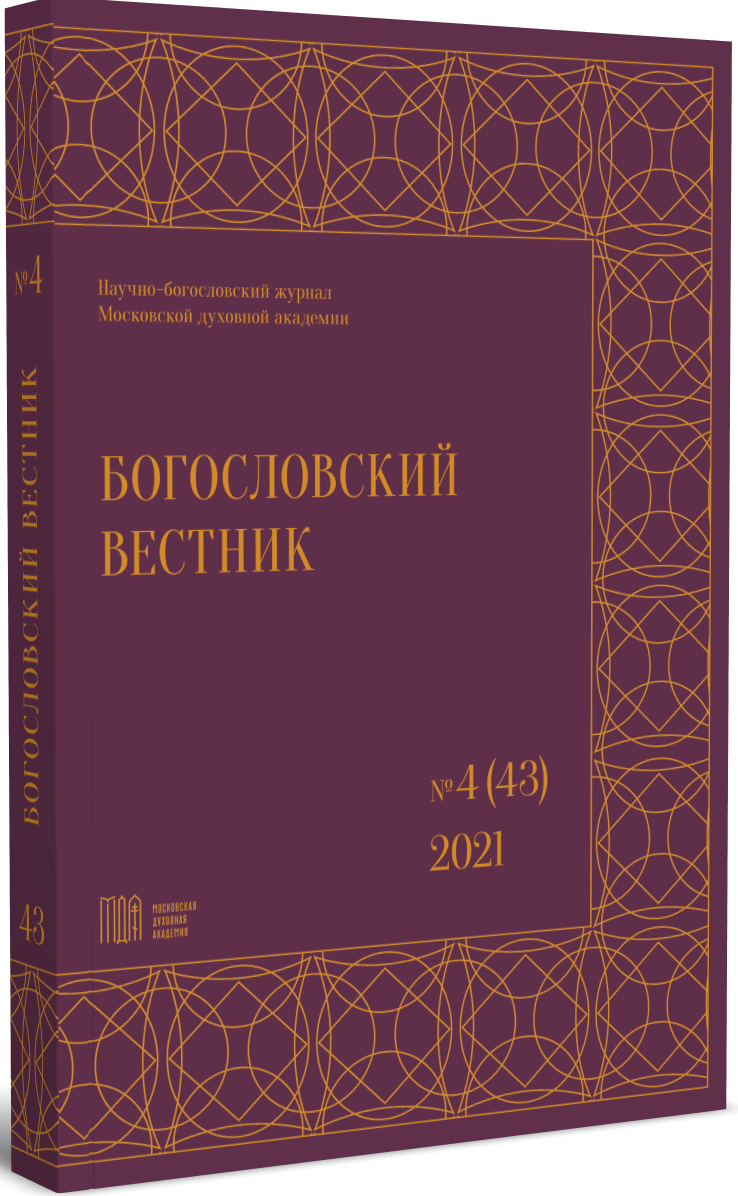Образ «ночи» и тема поэтического познания в творчестве С. И. Фуделя
DOI:
https://doi.org/10.31802/GB.2021.43.4.015Ключевые слова:
С. И. Фудель, романтизм, Серебряный век, символизм, Ф. И. Тютчев, А. С. Пушкин, история литературы, философия, теология, апологетикаАннотация
В статье предпринимается попытка реконструировать взгляды известного церковного писателя С. И. Фуделя на внутреннюю логику развития русской и европейской культуры XIX–ХХ вв. Особое внимание С. Фудель уделяет теме поэтического «ночного» знания, различные концепции которого сложились в европейской литературе, начиная с эпохи романтизма, а также теме подлинного общения, неотделимой от вопроса о подлинном знании. С точки зрения духовного писателя, произведения, в которых отразилось такое стремление к преодолению одиночества и познанию мира во всей его глубине, имеют ценность для христианина: в них нашли выражение духовные поиски художников, интуитивно ощущавших реальность духовного мира. Однако, хотя искусство и «закономерно» как форма духовной жизни, оно в то же время «ненадёжно», поскольку часто подменяет поклонение Богу поклонением «божественной» красоте. По мысли Фуделя, итогом развития европейского и русского искусства становится осознание непреодолимой антиномии: художник, ощущая божественные «истоки» жизни, стремится приобщиться к Абсолюту; искусство и стоящая за ним «природная» мистика начинают восприниматься как путь к богопознанию, но движение по этому пути неизбежно приводит к разочарованию, столкновению с хаосом, злом и смертью в падшем мире. Художник оказывается в тупике и вынужден либо отвергнуть свою изначальную интуицию и признать ложной надежду на обретение подлинной красоты и истины, либо обратиться от «природы» к трансцендентному Богу, действующему в Церкви.
Скачивания
Библиографические ссылки
Nietzsche F. Die Geburt der Tragödie aus dem Geiste der Musik // Idem. Werke in 3 Bdn. München: Hanser, 1954. Bd. 1. S. 20–134.
Novalis. Schriften / hrsg. von P. Kluckhohn, R. Samuel. Stuttgart: Kohlhammer, 1977. Bd. 1.
Блок А. А. Полное собрание сочинений и писем. В 20 т. М.: Наука, 1997. Т. 3.
Булгаков С. Н. Свет невечерний. М.: Республика, 1994.
Брюсов В. Я. Ф. И. Тютчев. Смысл его творчества // Он же. Собрание сочинений: В 7 т. М.: Худож. лит., 1975. Т. 6. С. 193–208.
Достоевский Ф. М. Полное собрание сочинений: В 30 т. Л.: Наука, 1974. Т. 10.
Иванов Вяч. О границах искусства // Он же. Собрание сочинений / под ред. Д. В. Иванова, О. Дешарт. Брюссель: Foyer Oriental Chrétien, 1974. Т. 2. С. 627–651.
Кант И. Критика чистого разума. М.: Наука, 1999.
Ницше Ф. Рождение трагедии // Он же. Сочинения: В 2-х т. М.: Мысль, 1990. Т. 1. С. 47–158.
Ницше Ф. О пользе и вреде истории для жизни // Он же. Сочинения: В 2-х т. М.: Мысль, 1990. Т. 1. С. 158–230.
Соловьёв В. С. О поэзии Тютчева // Тютчев: Сборник статей. СПб.: Парфенон, 1922. С. 47–59.
Тютчев Ф. И. Полное собрание сочинений и письма: В 6 т. М.: Классика, 2002. Т. 1.
Фудель С. И. Собрание сочинений: В 3-х т. / сост., подготовка текста, коммент. прот. Н. В. Балашова, Л. И. Сараскиной. М.: Русский путь, 2001–2005.
Вольский А. Л. Эстетический миф немецкого модернизма: конструкция и деконструкция (презентация научного проекта) // Учёные записки Комсомольского-на-Амуре государственного технического университета. 2018. № 4–2 (36). С. 35–41.
Жирмунский В. М. Немецкий романтизм и современная мистика. СПб.: Аксиома; Новатор, 1996.
Зайонц Л. О. «Парки бабье лепетанье…» (комментарий к реплике Л. В. Пумпянского) // Тыняновский сборник. Вып. 11. М.: ОГИ, 2002. С. 268–284.
Зеньковский В. В. Философские мотивы в русской поэзии // Ф. И. Тютчев: Pro et contra. СПб.: РХГА, 2005. С. 738–745.
Карельский А. В. Немецкий Орфей: беседы по истории западных литератур. М.: РГГУ, 2007.
Койре А. Очерки истории философской мысли. М.: Прогресс, 1985.
Лосский Н. О. История русской философии. М.: Высшая школа, 1991.
Пумпянский Л. В. Поэзия Ф. И. Тютчева // Урания. Тютчевский альманах. 1803–1928. Л.: Прибой, 1928. С. 9–57.
Топоров В. Н. Заметки о поэзии Тютчева (Ещё раз о связях с немецким романтизмом и шеллингианством) // Тютчевский сборник. Таллин, 1990. С. 32–107.
Čyževśkyj D. Tjutčev und die deutsche Romantik // Zeitschrift für slavische Philologie. 1927. Bd. 4. №. 3/4. S. 299–322.
Загрузки
Опубликован
Как цитировать
Лицензия

Это произведение доступно по лицензии Creative Commons «Attribution-ShareAlike» («Атрибуция — На тех же условиях») 4.0 Всемирная.








